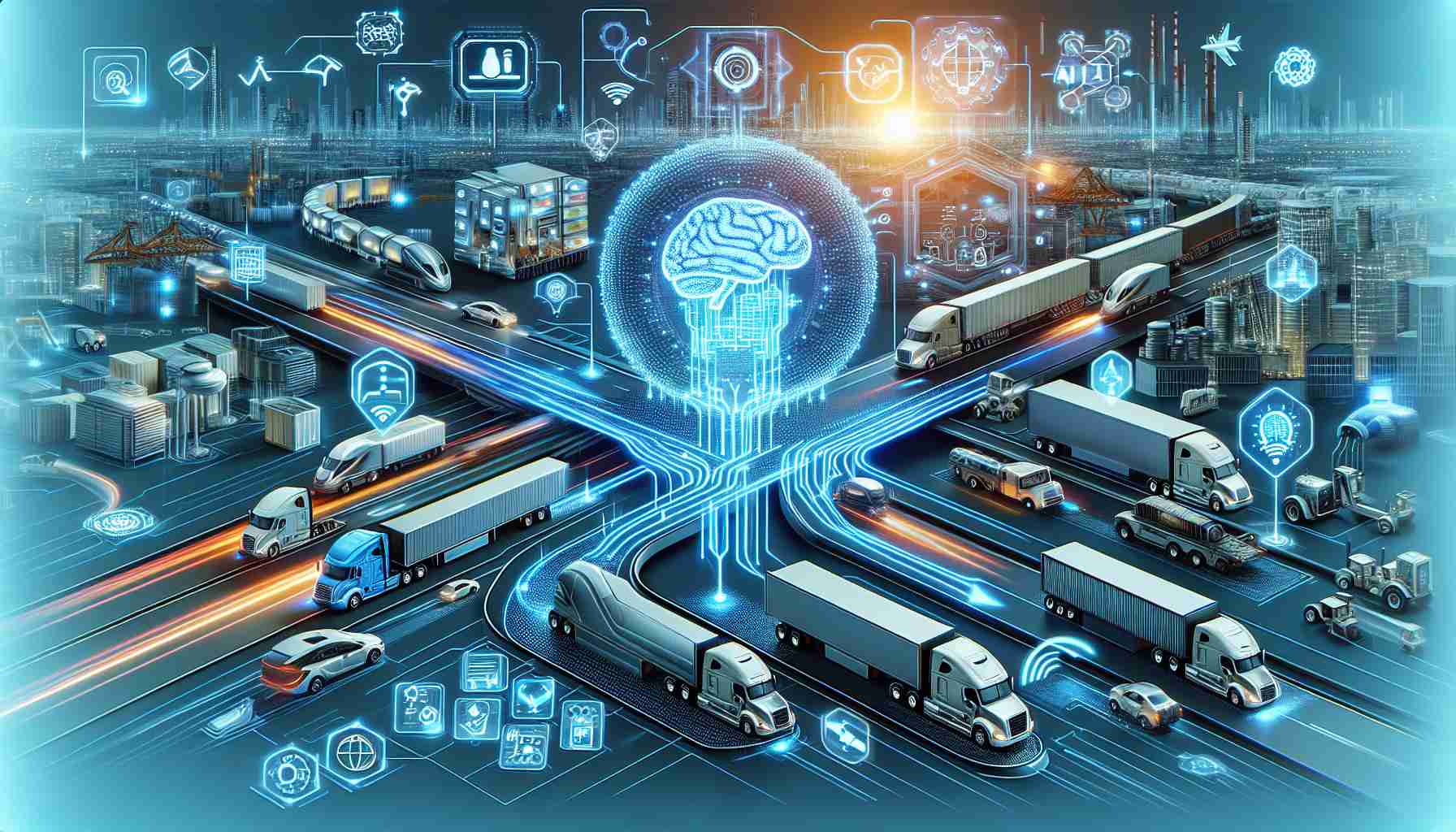The transportation industry is undergoing a remarkable transformation thanks to the integration of Artificial Intelligence (AI). AI technologies are not only paving the way for self-driving vehicles but are also enhancing fleet management systems, leading to substantial efficiencies and new capabilities.
AI’s role within transportation extends to a variety of applications aimed at optimizing operations and bolstering safety. Through real-time health monitoring of drivers, route optimization, and automating clerical tasks like invoicing and order entries, companies can significantly reduce operational costs and improve productivity.
Ellina Lolis, the Managing Director at MCG Logistics, highlighted during a Bibby Financial Services podcast discussion that Polish road transport still has some catching up to do in comparison to the world’s most developed economies.
Adopting AI in fleet management allows for real-time vehicle condition monitoring, thereby mitigating breakdown risks and enabling more efficient maintenance scheduling. International examples have shown that implementing AI for fleet management can lead to a 10-15% reduction in operational costs. A report from the Polish Road Transport Institute predicts an 11-37% productivity increase in the economy by 2035, attributed to AI advancements.
Globally, AI is playing a transformative role in the transport industry. Advance tests of autonomous vehicles are underway in the United States and Europe, while China is leveraging AI extensively for logistics, warehouse optimization, and monitoring road conditions in real-time.
The prospect of autonomous trucks presents an exciting opportunity for the logistics sector, promising to lower operating costs, minimize accident risks, and enhance the efficiency of cargo transports. Companies like Tesla have announced their vision to introduce self-driving trucks in the market. Encouragingly, German Continental and US-based Aurora are also committing to the production of autonomous trucks by 2027.
Aside from fleet management and autonomous transit, AI is also revolutionizing logistics by facilitating warehouse optimization, inventory management, and streamlined route planning. Moreover, AI contributes to road safety by detecting signs of driver fatigue and inattention through in-cab cameras and sensors.
The potential of AI extends to traffic infrastructure management, analyzing data from various sources to predict and manage traffic flow, thus reducing congestion, optimizing transportation, and cutting down emissions. For example, smart traffic management systems in Singapore are using AI to alleviate traffic and improve air quality.
As the transportation industry navigates new regulations, such as the Mobility Package concerning driver work hours and compensation, AI becomes a necessity. Intelligent second-generation tachographs will soon be mandatory, automatically recording work hours, country border crossings, and time zones without manual data entry.
To sustain investment in technology amidst financial strains in the transport sector, solutions like factoring, offered by companies like Bibby Financial Services, become invaluable. This financial tool enables the quick release of funds from invoices, vital in an industry ridden with long payment terms and increasing payment bottlenecks.
Looking forward, the widespread adoption of AI in transportation is essential for the future of Polish transport, signaling the need for substantial investment and technological adaptation. Financial support such as factoring can assist Polish transport firms in embracing AI and maintaining competitiveness in a swiftly evolving sector.
Important Questions and Answers:
1. How does AI contribute to vehicle safety in the transportation industry?
AI contributes to vehicle safety by providing real-time monitoring of vehicle conditions, detecting potential maintenance issues before they lead to breakdowns, and predicting and managing traffic flow to reduce accidents. Additionally, in-cab cameras and sensors monitor driver fatigue and inattention, directly impacting road safety.
2. What are the challenges associated with implementing AI in transportation?
Challenges include high initial investment costs, data privacy and security concerns, potential job displacement due to automation, and the need for updated regulations and standards to ensure the safe integration of AI technologies in the transportation sector.
3. Are there any controversies tied to the use of AI in transportation?
Controversies often arise around job security, as automation could reduce the demand for certain roles, including drivers and administrative staff. Moreover, ethical considerations concerning decision-making by autonomous vehicles in emergency situations and data privacy issues are also topics of debate.
Advantages and Disadvantages:
Advantages:
– Increases operational efficiency and reduces costs
– Enhances safety by monitoring driver behavior and vehicle health
– Optimizes route planning and traffic management
– Streamlines warehouse and inventory management
Disadvantages:
– High capital requirement for technology implementation
– Potential for reduced employment opportunities in the sector
– Ongoing concerns around data security and algorithms making critical decisions
– Dependence on robust digital infrastructure, which may not be available in all regions
Related Links:
You can explore more about AI and its impact on different sectors by visiting these main domains:
– IBM: Known for its AI technology Watson and research in AI.
– NVIDIA: Provides AI computing platforms for various industries.
– Tesla: Focuses on electric vehicles, energy storage, and AI for self-driving vehicles.
– Continental AG: Offers automotive manufacturing, including AI in autonomous vehicles.
Additional Relevant Facts to the Article:
– AI can enhance predictive analytics in transportation, allowing companies to anticipate demand, optimize delivery times, and manage resources more effectively.
– The adoption of electric and autonomous vehicles can significantly cut emissions, contributing to a greener transportation industry.
– Machine learning algorithms improve over time, potentially making AI systems more reliable than human-operated systems in some functional areas.
– Automation through AI can also enhance customer experiences with more accurate delivery times and real-time tracking capabilities.
– There are significant ethical implications of AI in transportation, particularly with autonomous vehicles, related to decision-making in emergency scenarios.
– New job roles in AI maintenance, data analysis, and cybersecurity will arise within the transportation industry as automation increases.

